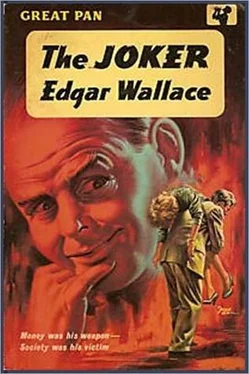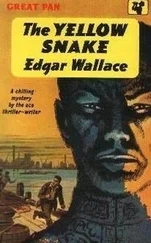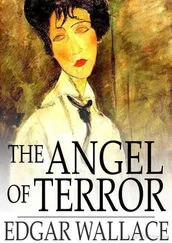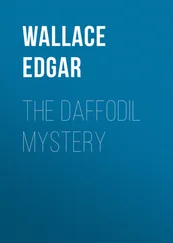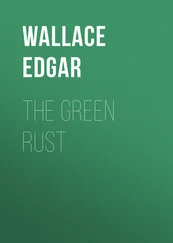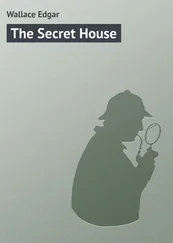Edgar Wallace - The Joker
Здесь есть возможность читать онлайн «Edgar Wallace - The Joker» весь текст электронной книги совершенно бесплатно (целиком полную версию без сокращений). В некоторых случаях можно слушать аудио, скачать через торрент в формате fb2 и присутствует краткое содержание. Год выпуска: 0101, Жанр: Старинная литература, на английском языке. Описание произведения, (предисловие) а так же отзывы посетителей доступны на портале библиотеки ЛибКат.
- Название:The Joker
- Автор:
- Жанр:
- Год:0101
- ISBN:нет данных
- Рейтинг книги:5 / 5. Голосов: 1
-
Избранное:Добавить в избранное
- Отзывы:
-
Ваша оценка:
- 100
- 1
- 2
- 3
- 4
- 5
The Joker: краткое содержание, описание и аннотация
Предлагаем к чтению аннотацию, описание, краткое содержание или предисловие (зависит от того, что написал сам автор книги «The Joker»). Если вы не нашли необходимую информацию о книге — напишите в комментариях, мы постараемся отыскать её.
The Joker — читать онлайн бесплатно полную книгу (весь текст) целиком
Ниже представлен текст книги, разбитый по страницам. Система сохранения места последней прочитанной страницы, позволяет с удобством читать онлайн бесплатно книгу «The Joker», без необходимости каждый раз заново искать на чём Вы остановились. Поставьте закладку, и сможете в любой момент перейти на страницу, на которой закончили чтение.
Интервал:
Закладка:
She had not anticipated that it would be Harlow himself who would open the door to her. He wore a dinner jacket, a pleated silk shirt and round the waist of his well cut trousers a cummerbund of oriental brocade. He looked superb. But the old thrill?…
Without realising her action she shook her head slowly.
His was a tremendous personality, dominating, masterful, sublimely confident. But he was not godlike. Almost she felt disappointed. Yet if he had been the Harlow of her mind it is doubtful whether she would have entered the house.
‘Most good of you!’ He helped her to struggle other heavy coat. ‘And very good of Stebbings! The truth is that my secretary is down with ‘flu and I hate employing people from agencies.’
He opened the door of the library and, entering, stood waiting with the edge of the door in his hand. As she stepped into the library, her foot slipped from under her on the highly-polished floor, and she would have fallen, but he caught her in a grip that was surprisingly fierce. As she recovered, she was facing him, and she saw something like horror in his eyes—just a glimpse, swift to come and go.
‘This floor is dreadful,’ he said jerkily. ‘The men from Herrans should have been here to lay the carpet.’
She uttered an incoherent apology for her clumsiness, but he would not listen.
‘No, no—unless you are used to the trick of walking on it—’
His concern was genuine, but he made a characteristic recovery.
‘I have a very important letter to write—a most important letter. And I am the worst of writers. Dictation is a cruel habit to acquire—the dictator becomes the slave of his typist!’
His attitude might be described as being generally off-handed. It struck Aileen that he was not at all anxious to impress her. She missed the smirk and the touch of ingratiating pomposity with which the middle-aged business man seeks to establish an impression upon a new and pretty stenographer. In a sense he was brusque, though he was always pleasant. She had the feeling of being put in her place—but it was an exact grading—she was in the place she belonged, no higher, no lower.
‘You have a notebook? Good! Will you sit at my table? I belong to the peripatetic school of dictators. Comfortable? Now—’
He gave a name and an address, spelling them carefully.
The letter was to a Colonel Harry Mayburgh of 9003 Wall Street.
‘My dear Harry’, he began. The dictation went smoothly from hereon. Harlow’s diction was a little slow but distinct.
He was never once at a loss for a word, nor did he flounder in the morass of parentheses. Towards the end of the letter:
‘…the European situation remains settled and there is every promise of a revival in trade during the next few months. I, for one, will never believe that so unimportant a matter as the Bonn affair will cause the slightest friction between ourselves and the French.’
She remembered now reading of the incident. A quarrel between a sous-officier of the French army and a peppery British colonel who had gone to Bonn.
So unimportant was the incident that when a question had been raised in the House of Commons by an inquisitive member, he had been greeted by jeering laughter. It seemed surprising that a man of Harlow’s standing should think it worth while to make any reference to the incident.
He stopped here, pinching his chin and gazing down at her abstractedly. She met the pale eyes—was conscious that in some ineffable manner his appearance had undergone a change. The pale eyes were deeper set; they seemed to have receded, leaving two little wrinkles of flesh to spoil the unmarked smoothness of skin. Perhaps she was mistaken and was seeing now, in a leisurely survey, characteristics which had been overlooked in the shock of meeting him at Fotheringay Mansions…
‘Yes,’ he said slowly, answering, as it were, a question he had put to himself. ‘I think I might say that. Will you read back?’
She read the letter from her shorthand and when she had finished he smiled.
‘Splendid!’ he said quietly. ‘I envy Mr Stebbings so efficient a young lady.’
He walked to the side-table, lifted a typewriter and carried it to the desk.
‘You will find paper and carbons in the top right hand drawer,’ he said. ‘Would you mind waiting for me after you have finished? I shall not be more than twenty minutes.’
She had made the required copies of the letter within a few minutes of his departure. There were certain matters to be considered; she sat back, her hands folded lightly on her lap, her eyes roving the room.
Mr Harlow’s splendour showed inoffensively in the decorations of the room. The furniture, even the bookcases which covered the walls, were in Empire style. There was a pervading sense of richness in the room and yet it might not in truth be called over-ornate, despite the gold and crystal of the candelabras, the luxury of heavy carpets and silken damask.
So roving her eyes came to the fireplace where the red coals were dying. On the white-tiled hearth immediately before the fire a little screw of paper had been thrown which, under the influence of the heat, had opened into a crumpled ball. She saw a pencilled scrawl.
‘Marling.’
She spelt the word—thought at first it was ‘making.’ And then she did something which shocked her even in the act—she stooped and picked up the paper, smoothed it out and read quickly, as though she must satisfy her curiosity before S, her outraged sense of propriety intervened.
The handle of the door turned; she slipped the creased paper into her bag, which was open on the table, and closed it as the stony-faced Mrs Edwins came into the room.
She came to the desk where the girl sat, her big, gaunt hands folded, her disparagement conveyed rather than expressed.
‘You’re the young woman,’ she stated.
‘I’m the young woman,’ smiled Aileen, who had a soft spot for age. She grew a little uncomfortable under the silent scrutiny that followed.
‘You’re a typewriter?’
‘A typist—yes. I am Mr Stebbings’s secretary.’
‘Stebbings!’
Mrs Edwins’ voice was surprisingly harsh and loud. The sudden change which came to her face was remarkable.
Eyes and thin lips opened together in startled surprise.
‘Stebbings? The lawyer? You’ve come here from him?’
For a second the girl was too startled to reply. ‘Yes…Mr Harlow asked that I be sent; his secretary was ill—’
‘Oh—that’s it!’ Relief unmistakable.
And here it flashed on the girl that this must be Mrs Edwins—that L. Edwins to whom reference had been made in the will of the late Miss Mercy Harlow. Perhaps, her nerves on edge, the woman received the thought, for she said quickly:
‘I am Mrs Lucy Edwins—Mr Harlow’s housekeeper.’
Aileen murmured some polite commonplace and wondered what was coming next. Nothing apparently, for, with a quick glance round the room, the woman sailed out, her hands still clasped before her, leaving the girl to her penitence and self-reproach. And these distresses were inevitable. A prying maid (she told herself) who read her mistress’s letters and poked into the mysteries of locked drawers was a pattern of decorum compared with a secretary who yet must inspect the waste-paper of a chance employer. She was of a mind to throw the paper into the fire, but it was natural that she should find excuses for her conduct. And her excuse (stoutly offered and defended to herself) was Jim Carlton and the vague familiarity of ‘Marling’.
Ten minutes passed and then Mr Harlow came slowly into the room. The door closed with a click behind him and he stood before her on the very spot where Mrs Edwins had conducted her cold survey.
‘My housekeeper came in, didn’t she?’
Читать дальшеИнтервал:
Закладка:
Похожие книги на «The Joker»
Представляем Вашему вниманию похожие книги на «The Joker» списком для выбора. Мы отобрали схожую по названию и смыслу литературу в надежде предоставить читателям больше вариантов отыскать новые, интересные, ещё непрочитанные произведения.
Обсуждение, отзывы о книге «The Joker» и просто собственные мнения читателей. Оставьте ваши комментарии, напишите, что Вы думаете о произведении, его смысле или главных героях. Укажите что конкретно понравилось, а что нет, и почему Вы так считаете.
